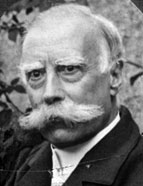

The first-born son of poet António Feliciano de Castilho ’ s second marriage to Ana Carlota Xavier de Vilhena, he inherited the title of V iscount from his father, becoming the 2 nd Viscount of Castilho by decree of 1 April 1873. Júlio de Castilho and his siblings were brought up in their father ’ s high intellectual environment, which included Alexandre Herculano, Bulhão Pato, D. António da Costa, Almeida Garrett, Luís Augusto Palmeirim , Filipe Folque , among other leading cultural figures of their time. The erudite environment in which he moved and the privileged social status he enjoyed, dominated by a love of literature and the arts, decisively shaped his intelligence and sensibility. He added personal annotations to the invaluable library he inherited, supplemented by new acquisitions. To the family ’ s art collection, he added his engravings and canvases, an expression of the artistic talent he was also gifted with, featuring an oil portrait of his father, one of the manifestations of the cult he paid to his memory throughout his life.
After his high school studies, he completed his academic training with the Higher Degree in Humanities in Lisbon, founded by decree in 1858 and letter of law in 1859, although classes only began in January 1861. Th is postponement was greatly influenced by ‘the political instability that existed for almost the entire first half of the century’ ‘and a certain attraction to the study of experimental sciences’ (Sérgio Campos Matos, O Curso Superior de Letras [The degree course in Arts] , pp. 367-388 , 370). In the end, it was decided that it was their responsibility to train young people for university admission, to train secondary school teachers and capable candidates for public administration posts, thus combining scientific training with vocational training. Júlio de Castilho must have been one of the first students, making his debut with his dissertation Comparação da literatura de Itália com a de Portugal nos fins do século XV [Comparison of Italian and Portuguese literature at the end of the 15 th century] , thus fulfilling a pedagogical requirement (Xavier da Cunha, ‘Júlio de Castilho estudante do Curso Superior de Letras, In memoriam , p. 37-47). His professional achievements throughout his life were an exemplary fulfilment of the objectives of the innovative academic institution.
This work is financed by national funds through FCT - Foundation for Science and Technology, I.P, in the scope of the projects UIDB/04311/2020 and UIDP/04311/2020.
